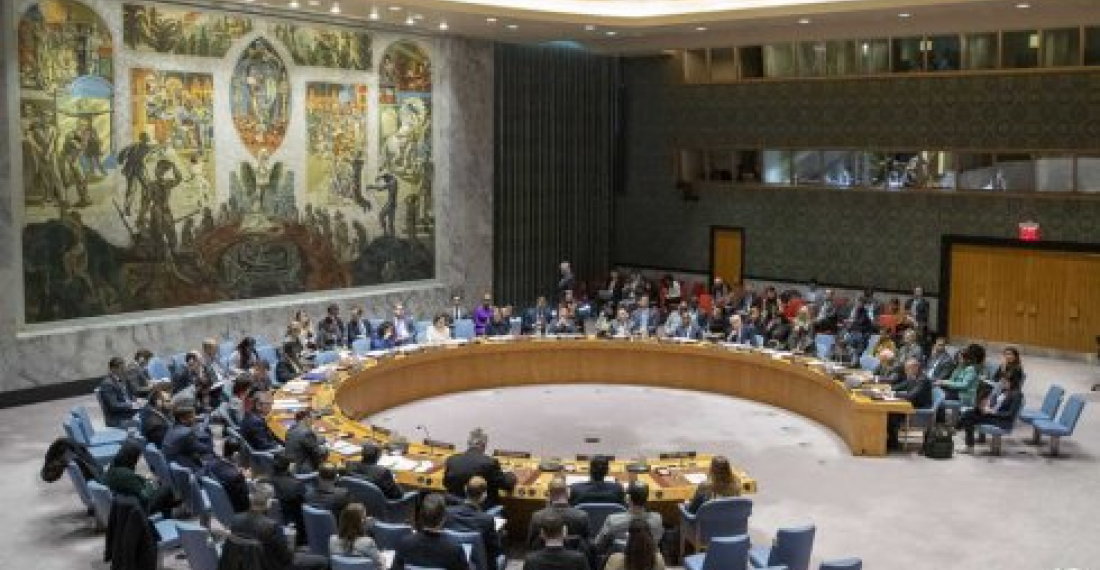On Thursday, 1 October, Russia took over the chairmanship of the UN Security Council. The chairmanship rotates every month between the fifteen members of the Council by alphabetical order. On Thursday, Russia took over from Niger, who chaired the Council in September. On Tuesday (29 September the Security Council discussed the current conflict in the South Caucasus at the request of the European members of the Council.
Russia's Permanent Representative to the United Nations Vassily Nebenzia has told the media that the focus of the Russian Chairmanship is going to be the Persian Gulf. "Debates on the situation in the Persian Gulf with the participation of UN Secretary General Antonio Guterres will be a signature event of Russia's presidency in the UN Security Council in October", he said
"On 20 October we will have the first signature event of the Russian presidency under the title "Maintenance of International Peace and Security", comprehensive review of the situation in the Gulf Region," he said. "We are inviting Secretary-General to brief us, as well as the Gulf countries to speak in the meeting."
On October 27, the UN Security Council will hold a meeting on political and humanitarian situation in Syria.
"This time we proposed to combine both political and humanitarian with the understanding that if certain developments require it, we will separate them," Nebenzia said.
Besides, on Russia's initiative, a UN Security Council meeting on Syrian chemical disarmament, traditionally held behind closed doors, will be held in the open format on October 5.
Nebenzia told the media that "the Minsk Group is the only established format that is to help the parties come to a settlement. And the Minsk Group is ready to facilitate [the negotiations]. But one important condition for the success of the Minsk Group facilitation is the political will of the parties themselves. Unfortunately, so far we hear certain statements which testified that we are not there yet," Nebenzia said. "I hope that the joint statement by the Presidents of the Co-Chair countries of the Minsk Group will be a game changer."
"The conflict in Nagorno-Karabakh is a matter of utmost concern to us, not because it is very close to our borders, but primarily because both Armenia and Azerbaijan are not countries which are strange to us," the Russian diplomat added. "And their peoples are not strange to us. We have special relations with both countries and, of course, it is painful for us to look at what is happening."
Nebenzia also dismissed an assumption that Russia and Turkey were supporting the opposing sides of the Nagorno-Karabakh conflict.
"Yes, Turkey is unequivocally supporting Azerbaijan. We know that. But that doesn't mean that we are with the other side supporting Armenia vis-a-vis Azerbaijan. That's not the case. We support the just settlement. We support the ceasefire, the end of hostilities," he said. "We want both countries to stop this escalation."
source: commonspace.eu with TASS (Moscow) and agencies
photo: UN Security Council in session (archive picture)






